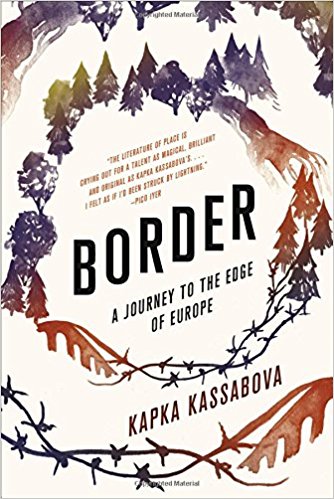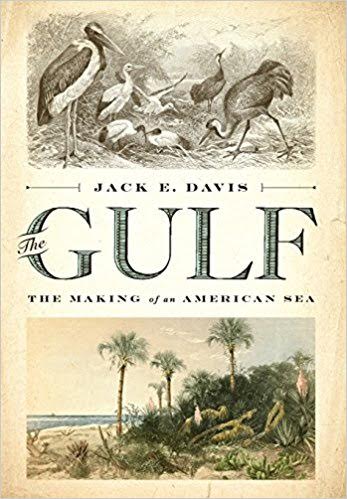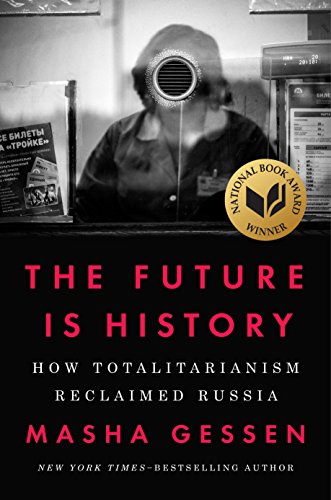The MFA students from the Creative Writing at The New School interviewed the NBCC finalists for the 2017 year. The interviews are also published at Brooklyn Magazine.
John Peter Apruzzese interviewed Kapka Kassabova about her book Border: A Journey to the Edge of Europe (Graywolf Press).
 Having left as a young woman after the fall of the Berlin Wall, Kapka Kassabova paints an epic portrait of her return journey to her native Bulgaria. There, she rediscovers the resilient border world of her childhood and the myths, ghosts, and those that continue to inhabit and cross it. Border: A Journey to the Edge of Europe (Graywolf) plunges us into the heart of our search for and belief in identity. Poet and travel writer, Kassabova infuses her storytelling with the region’s ancient mysteries, so at any juncture we wonder if we haven’t stumbled into a mythical, parallel universe where what was once thought departed, is alive and eternally present.
Having left as a young woman after the fall of the Berlin Wall, Kapka Kassabova paints an epic portrait of her return journey to her native Bulgaria. There, she rediscovers the resilient border world of her childhood and the myths, ghosts, and those that continue to inhabit and cross it. Border: A Journey to the Edge of Europe (Graywolf) plunges us into the heart of our search for and belief in identity. Poet and travel writer, Kassabova infuses her storytelling with the region’s ancient mysteries, so at any juncture we wonder if we haven’t stumbled into a mythical, parallel universe where what was once thought departed, is alive and eternally present.
Along the way, we meet the border people, hear their tragedies and triumphs, and discover their paradoxical relationship with the dubious boundary that separates them. This is a story for our times told through the region’s haunting narratives and entrenched identities that at every turn of phrase whisper a lesson from the past.
John Peter Apruzzese: The border of Bulgaria, Greece, and Turkey has been at the center of world news owing to the large migrant influx. The region is a personal place for you. Did you feel an urgency to write this story now?
Kapka Kassabova: That border has cast a shadow over me my whole life, really—because I grew up behind it. I grew up with the question: Why can’t we cross the border? Why can’t we go to Greece and Turkey, or anywhere else for that matter? Why are we living inside an open-air prison? It was a healthy question to which there was no healthy answer. That border was where The Iron Curtain stopped being a metaphor and acquired a physical body. I always knew I was going to write about it, and my border journey began in 2013, before the refugee crisis. My writer’s instinct told me the time had come.
JPA: Border is your personal homecoming story, a literary tradition dating back to the Greeks. In the book you write, “Perhaps the story of all our lives is the story of what is lost and how we go about looking for it.” What were your expectations and did you find what you were looking for?
KK: It’s important to have no expectations as such. Though of course I was looking for narrative gold, and I found it. But I was also looking for meaning and truth, both personal and collective—a point of meaningful contact with the past, present, and future. The border zone, in all three countries, is a desperately plundered place, but I found it rich in meaning and symbolism. It’s a place of universal truths.
Luke Hodina interviewed Frances FitzGerald about her book Evangelicals: The Struggle to Shape America (Simon & Schuster).
 Luke Hodina: Billy Graham died today. How would you characterize his legacy?
Luke Hodina: Billy Graham died today. How would you characterize his legacy?
Frances FitzGerald: I think his real legacy is creating evangelicals. There was not such a thing before that. That is to say, in the nineteenth century, all Americans were evangelicals. Then the term went out of use because of the Fundamentalist-Modernist controversy. Graham began as a fundamentalist himself, as a boy and as a young preacher. But he wanted a wider audience, and he wanted reconciliation between more moderate Protestants and fundamentalists. He found that fundamentalists just wouldn’t do that. They were too separatist and difficult, so he cut his ties with them, and started calling himself an Evangelical. That’s how we now define evangelicals; it’s Billy Graham’s achievement.
LH: You’ve been writing about evangelicals since the eighties. What has sustained your interest for such a long time?
FF: Well, I’ve done a lot of other things in the meantime—I wrote a very long book about Reagan and Star Wars, and I did a lot of other magazine writing and published a picture book about Vietnam today—so it was sort of an on-and-off interest, until Bush came along. He was the favorite among evangelicals, and he was, in theory, doing a lot for them. I went back to the story, and then I realized that you couldn’t really understand evangelicals without understanding the history, and particularly the Fundamentalist-Modernist conflict. But also, you couldn’t understand their sense of sort of owning the American past. Because in a way they did.
Feiyi Xu interviewed Jack E. Davis about his book The Gulf: The Making of An American Sea (Liveright).
 In his book, The Gulf: The Making of An American Sea, Jack E. Davis explores and reveals the Gulf’s diverse world in a unique perspective by combining its history and natural environment. He grew up on the Gulf, knows the Gulf, and loves the Gulf.
In his book, The Gulf: The Making of An American Sea, Jack E. Davis explores and reveals the Gulf’s diverse world in a unique perspective by combining its history and natural environment. He grew up on the Gulf, knows the Gulf, and loves the Gulf.
Feiyi Xu (FX): When did you have the idea of this book?
Jack E. Davis (JD): 2010, months before the BP oil spill.
FX: What is your primary motivation to write this book?
JD: I grew up on the Gulf and wanted to write a cultural and natural history of a sea largely overlooked in in the traditional narrative of American history. After the oil spill, I believed it was especially important to recapture the true identity of the Gulf, to present it for what it is, which is more than an oil sump and sunning beach.
FX: Did you choose the title, “The Gulf: The Making of American Sea”? Could you please explain it?
JD: Yes, I chose the title. As I explain in the book, there are both historical and ecological reasons for why I call the Gulf an American sea. When Thomas Jefferson completed the Louisiana Purchase, giving the US its first Gulf-front property, the Spanish, French, and British were freely sailing the Gulf. He and other elected officials believed the Gulf was rightfully an American sea, the control of which would solidify American dominion in the region. He wanted the US to acquire Cuba, and other presidents tried. Eventually, the US secured half the shoreline of the Gulf, sharing the other half with Mexico and Cuba, but the US has since controlled the sea, dominating the seafood industry, for example, and oil extraction.
As for the ecological reason, the Gulf is one of the richest estuarine environments in the world, and the estuaries of the Gulf tend to concentrate around the five US states. Most of the freshwater that flows to the Gulf, and that is central an estuarine environment, comes down rives from the US states. The best sport and commercial fishing has always been around the US states, which is not to say one cannot find good fishing off Mexico.
Felicity LuHill, on behalf of Creative Writing at The New School and the NBCC, interviewed Masha Gessen about her book, The Future is History: How Totalitarianism Reclaimed Russia (Riverhead), which is among the final five selections in the category of Nonfiction for the 2017 NBCC Awards.
 Felicity LuHill (FL): This book intertwines stories of seven protagonists, which is akin to a novel, and has contextual information, which is similar to a textbook, but the tone overall feels very personal, like you're relating this epic story. What was your process for coming up with this structure?
Felicity LuHill (FL): This book intertwines stories of seven protagonists, which is akin to a novel, and has contextual information, which is similar to a textbook, but the tone overall feels very personal, like you're relating this epic story. What was your process for coming up with this structure?
Masha Gessen (MG): I usually do this with books: I know what my objectives are and I know what the topic is, and then I'm just reporting. I walk around for a bit, literally, bike and walk, and then suddenly, I get an idea of what it should be, what the structure is. So I can't tell you how I came up with this, but I can tell you what my objectives were. The book is really about trauma, but I didn't want to say the word “trauma.” I wanted to make people feel the trauma, and in order for people to feel the trauma but also learn, I needed to write a book in a way that's very different from the way nonfiction books are generally written. There's nothing wrong with the way nonfiction books are generated. I've written nine, and most of them have been your standard nonfiction book. My next one will not be structured like this, like a novel. But the way I think about it is that nonfiction books are usually told from the middle distance. The narrator is somewhere in the vicinity of their characters, but on the outside, right? So, you get to look at the characters from the outside, and you also get to observe events up close, but not too close, not from the inside.
I wanted to do what novels do, and novels do zero distance and bird's eye distance, but not middle distance, usually. In a novel, you have the interior view and you have the bird's eye view. So that's what I tried to do. The parts that you referred to as a textbook, I think of them as the war parts in War and Peace. Where it's like the movement of troops and the other parts are like the peace parts. I'm not comparing myself to Tolstoy, I'm just saying that that's like the ultimate way to think about a novel, is to think in shifting interior and bird's eye view frames. For example, none of my protagonists are ever quoted, because you're inside their heads, and none of them is described. None of them is physically described for the very reason that I didn't want you to ever step out of the inside of their heads, unless it was to zoom way out. That was my objective.

